Future of abortion access, voting rights faces critical test in 2023 Wisconsin Supreme Court primary
Voters in Wisconsin head to the polls for a crucial primary race, and what would normally be a little noticed judicial election is now a high-stakes battle for control of the state's Supreme Court.
By Zac Schultz | PBS News Hour
February 21, 2023
The 2023 Wisconsin Supreme Court vote is expected to shape abortion rights and could help decide the outcome of the 2024 presidential election — Geoff Bennett discussed the race with Zac Schultz of PBS Wisconsin.

VIDEO TRANSCRIPT
Amna Nawaz:
Voters in the battleground state of Wisconsin will head to the polls tomorrow for a crucial primary race.
Geoff Bennett took a closer look earlier today.
Geoff Bennett:
Amna, what would normally be a little noticed judicial election in Wisconsin is now a high-stakes battle for control of the state Supreme Court, a race that's expected to shape abortion rights in Wisconsin and could help decide the outcome of the 2024 presidential election in one of the nation's most closely divided battlegrounds.
Zac Schultz is a reporter for PBS Wisconsin and is following this race.
So, Zac, first, help us understand why this Wisconsin Supreme Court race is so critical. Why does it matter on a national level?
Zac Schultz, PBS Wisconsin:
Well, right now, the court is — have a 4-3 majority for the conservatives, more of the Republican-leaning members of the court.
And they're — this could flip it the other way. If one of the liberal candidates running wins, then, for the first time ever, Democratic supporters feel they would have a good shot at winning some cases. But why it may matter nationally and in 2024 has to do with 2020, as a lot of things point back to.
Wisconsin was one of the states where Donald Trump's campaign filed lawsuits to try and essentially overturn the results of the election. They tried to throw out tens of thousands of absentee ballots from Dane and Milwaukee counties, two Democratic strongholds. And if the Supreme Court at that time had decided to take that case and rule in his favor, then it likely would have flipped the outcome of Wisconsin, which was decided just by around 20,000 votes total.
So the court watchers are always looking at, what's the makeup of the court, how conservative are these justices, and what might happen down the road with some of these big issues?
Geoff Bennett:
Tomorrow's primary will feature to conservatives and to liberals, as you well know, running for the seat of a retiring conservative justice. And this race is nonpartisan, but the candidates have really staked out clear ideological positions, some of which they expressed in interviews with you.
Judge Janet Protasiewicz, candidate For Wisconsin Supreme Court:
Obviously, I have to follow the law. But people are very, very concerned about a wide variety of issues. They're concerned about women's right to choose. They're concerned about fair maps.
They're concerned about community safety. They're concerned about clean water. They're concerned about marriage equality.
Former Justice Daniel Kelly, candidate For Wisconsin Supreme Court:
If you think as a candidate that you should be virtue-signaling to attract the votes of a certain body of Wisconsinites, what you're telling them is that you are not — you are not committed to the constitutional order. And you're telling them that the politics should have a role in the court.
Geoff Bennett:
Zac Schultz, tell us more about these candidates and what you learned from your interviews with them.
Zac Schultz:
Well, there are two liberal-aligned candidates and two conservative-aligned candidates in this race. And 15 years ago, they were a little more cautious and running for the court about being public about where they would stand.
And now we're pretty much nonpartisan in name only. The parties are heavily involved in these races. So, on the liberal side, we heard from Janet Protasiewicz, who is one of the liberals. She's from Milwaukee County. She's been very open talking about that Wisconsin's legislative maps are gerrymandered. Conservatives say she's actively calling for that case to come to the court if she wins.
There's also Judge Everett Mitchell, who is from Dane County. He's running on more of a social justice platform, trying to gain attention. He hasn't raised as much money, so his profile is not nearly as high outside of his home area.
On the conservative side, we heard from Daniel Kelly, who is actually a former justice on the court. He was appointed and then lost his reelection bid in 2020. And he says that had to do more with Joe Biden and Bernie Sanders being on the same ballot the same day for the Democratic primary in the 2020 presidential race.
And then, finally, Jennifer Dorow is another conservative, and she gained a lot of attention by presiding over a very high-profile court case recently of a man who drove a car through the Waukesha Christmas parade a couple of years ago. And so she gained a lot of notoriety from that. So that's our four.
Geoff Bennett:
One indication of how much is at stake is the outside money, the millions upon millions of dollars being spent.
And is it right that there is more outside money being spent in this race than the candidates are spending themselves?
Zac Schultz:
By the end, that will certainly be the case.
Right now, there's still Wisconsin money that's been in play early on. But Daniel Kelly, who we heard from, one of the conservatives, already has said that he's got more than $20 million in outside special interest funding lined up ready to be in play for him if he makes it through this primary.
We have seen heavy fund-raising by both the Democratic Party, which they expect to spend, and some other liberal line groups that they will be putting in play. And, yes, some of the candidates are raising $20,000 at a pop from out-of-state people that, once they learn about this race, they're deciding this is where they want to invest their money this spring.
Geoff Bennett:
The two top finishers will advance to the general election in April.
What's the level of awareness? What's the level of enthusiasm among Wisconsin voters right now for this race in particular?
Zac Schultz:
Well, for this race, it's starting to heat up.
Of course, for people that actually follow politics closely in Wisconsin, this has been on the radar, actually, for a couple of years. For us political junkies, we have known this race was coming and that it had the ideological balance of the court hanging. And it's been waking up everyone else.
But it's starting to become more aware as you travel around the state to areas that kind of like to turn off once the presidential or the gubernatorial elections are done in the fall. They're becoming aware. The level of money from the outside is penetrating down to them through radio ads that they're not expecting to hear this time of year. Television ads are starting to go.
So we're not sure. This won't be high-profile, especially for a February primary. But, by April, we're expecting pretty good turnout, especially for a Supreme Court race.
Geoff Bennett:
Zac, is there a sense of who is leading this race?
Zac Schultz:
Well, we can look at the dollars and we can say that Janet Protasiewicz, who is on the liberal side, is definitely way ahead.
She's been fund-raising. She was first on the air. And for a low-profile race like that, that's very important. She's already lined up a lot of key Democratic Party endorsements. On the conservative side, there's been a little bit of a battle between the two, with Daniel Kelly actually accusing Jennifer Dorow of not being conservative enough or saying that she could not be aligned with the full conservative interests if she made it to the court.
So there's been a lot of inner party fighting, which has made more Republicans aware, because talk radio in Wisconsin's gotten heavily invested in the outcome on that end.
Geoff Bennett:
Zac Schultz with PBS Wisconsin.
Zac, thanks for sharing your reporting with us.
Zac Schultz:
My pleasure. Thank you.
 Passport
Passport





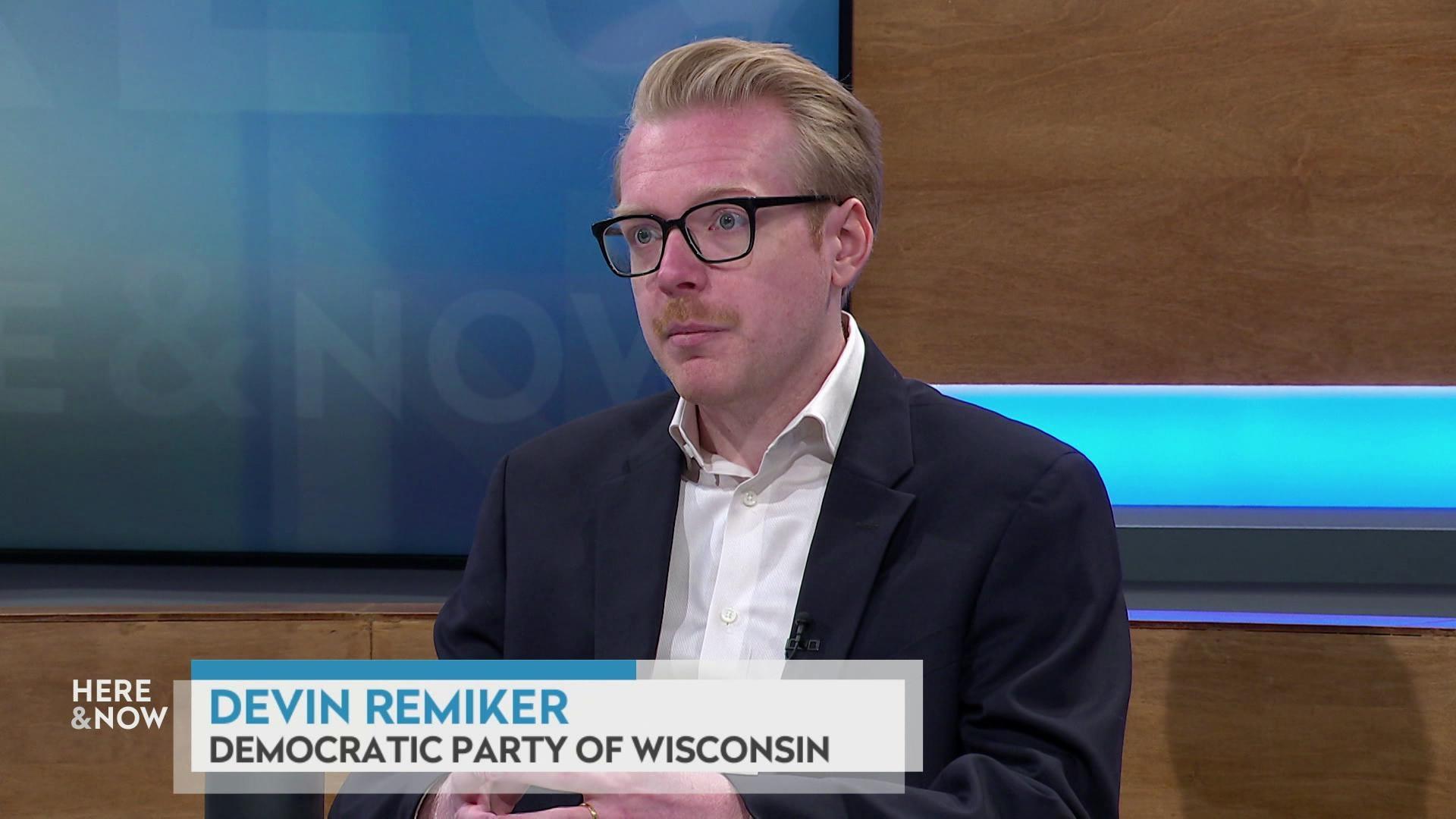
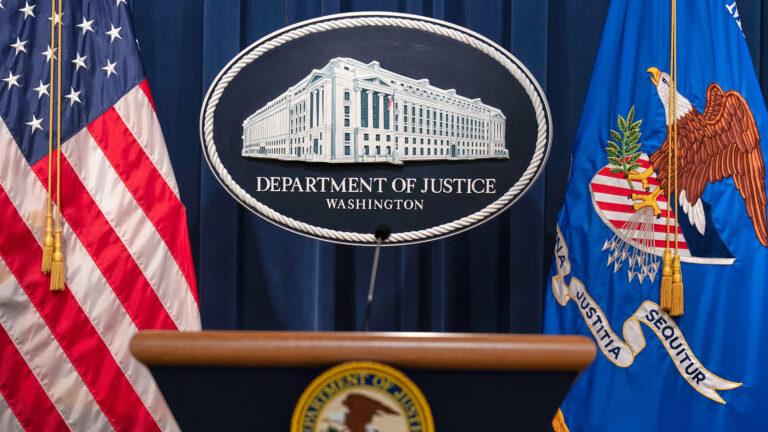
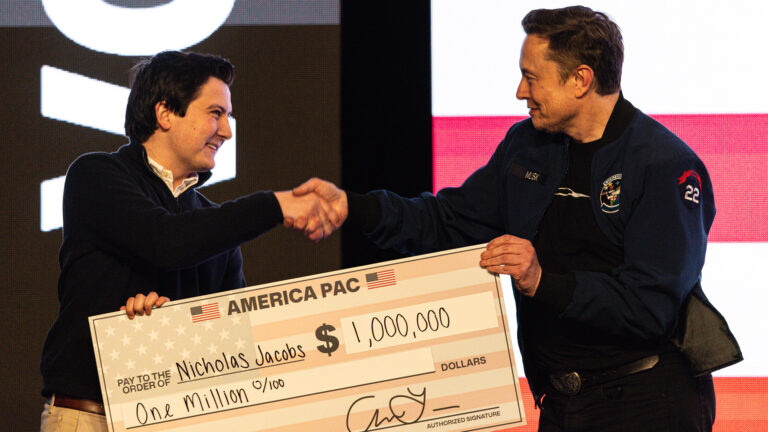
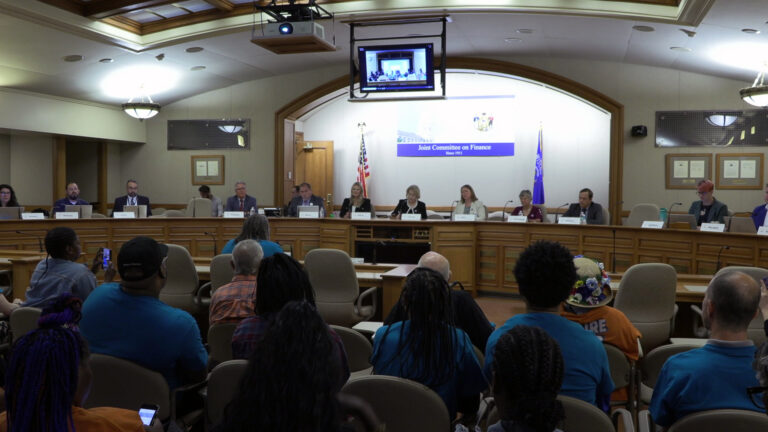
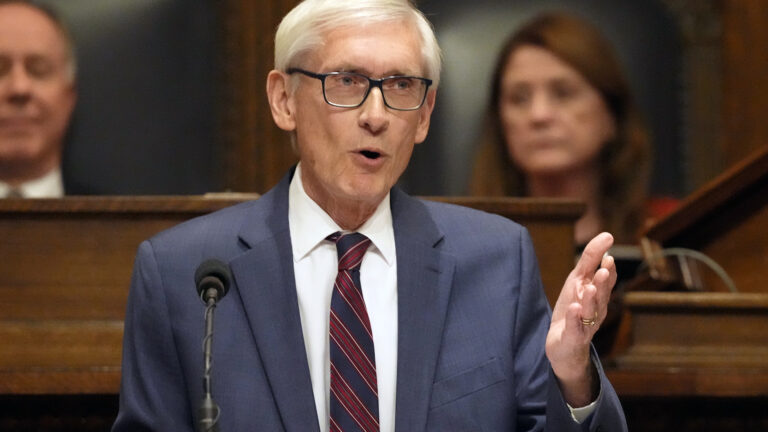

Follow Us